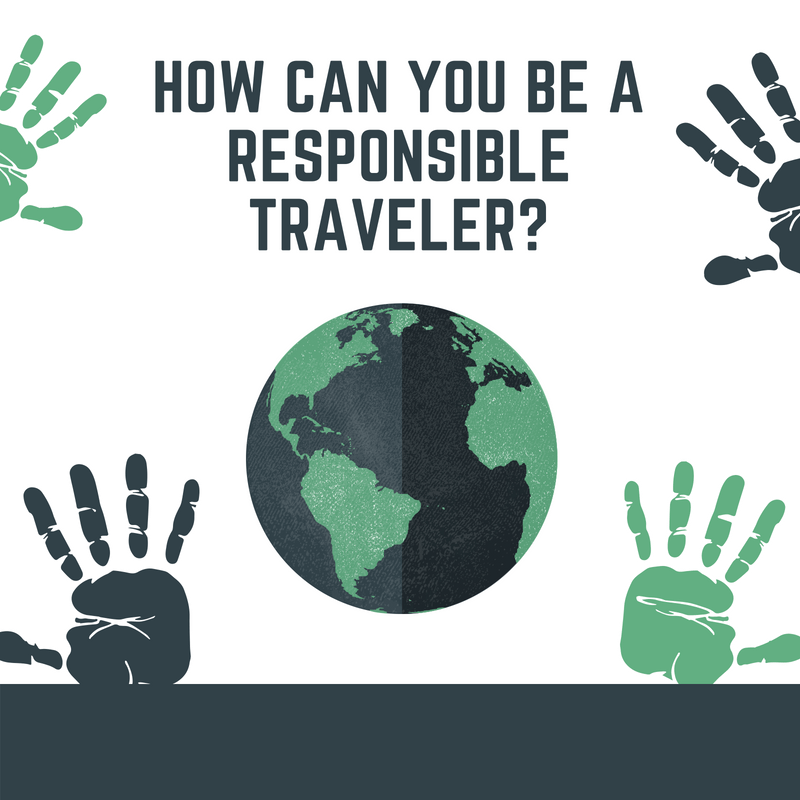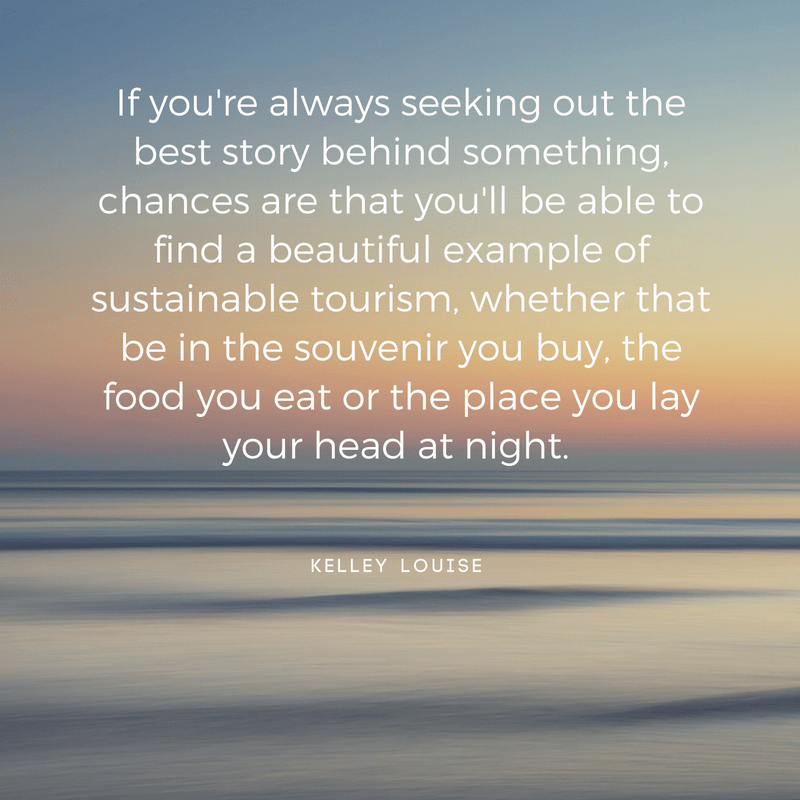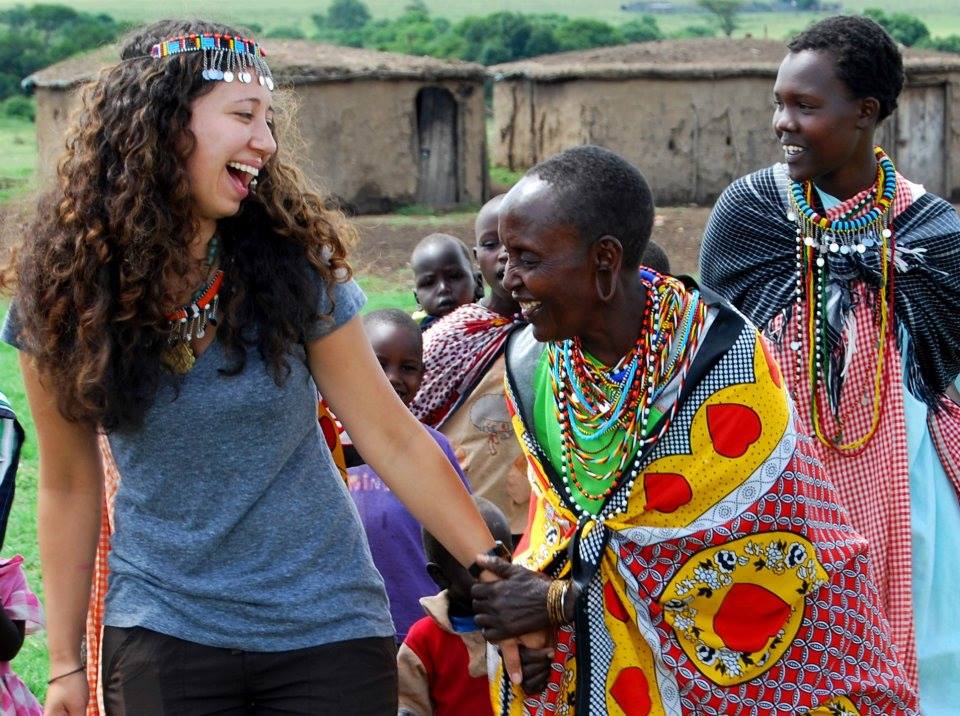
Understanding how you can make a difference through responsible travel isn’t as difficult as it may seem. I went straight to the experts with a question I often receive. “How can I be a more responsible traveler?”. Jessica Hansen, Global Engagement and Education Manager, from Kiva.org and Kelley Louise, Executive Director at the Impact Travel Alliance shared their top tips for being a more sustainable traveler.
Kelley Louise from Impact Travel Alliance

- My biggest tip would be that sustainability is a lifestyle – and you can start at home. The more you start to implement day-to-day actions, the easier it will become to make conscious decisions while abroad (and outside of your comfort zone).
- Far too often, I think we get bogged down by the rules – what we can and can’t do. But at its core, traveling sustainably is empowering. I love thinking about conscious tourism just in terms of being mindful of how you’re spending your money. If you’re always seeking out the best story behind something, chances are that you’ll be able to find a beautiful example of sustainable tourism, whether that be in the souvenir you buy, the food you eat or the place you lay your head at night.
- If you want to travel sustainably, do as the locals do. Ride the public transport, eat the local cuisine, venture off of the tourist track. By immersing yourself in the intricacies of what makes a city unique, you’ll naturally start to find experiences that are more sustainable.
- It’s exciting to think of sustainable tourism as being the key to improving our world. It can also be a bit overwhelming when you start to learn about all of the intricacies. I always remind travelers that sustainability is all about progress not perfection. The more you learn, the more empowered you’ll be. When in doubt, look to the basics of sustainable tourism: it’s travel that has a positive impact on the culture, environment and economy of a destination. If a booking experience can’t check off the basics for those three categories, then it’s not sustainable.


Jessica Hansen from Kiva.org

- As much as possible, keep your money in the local economy. Do some research to find out if your hotel is locally owned and operated. Do your best to avoid foreign-owned chain hotels and restaurants. If your souvenirs say ‘Made in China’ on the bottom and you’re anywhere but China, their neither as authentic nor as economically supportive of the local economy as they likely could be.
- Think critically about the activities you do. Most of us love animals and nature. As we encounter those things, we should think about if what we’re doing is in the best interest of the animal or the environment.
- In terms of assessing charities to give to or volunteer projects to work with, think about: 1) am I the priority or are the beneficiaries? For example, is it an orphanage that is letting you, a total stranger, walk in and interact with young children? Those you don’t know and will likely never see again? Or, are you building a local library or school, when you have little to no experience? Instead, the project could be employing skilled local workers and creating jobs. 2) is this project sustainable? Does it create a long-term solution that provides local people with a new resource, which they can also repair, sustain and maintain themselves. For example, there are thousands of broken down wells across Africa. Foreign groups came in to build them with foreign materials and labor. Local communities did not have access to the knowledge, skills or materials needed to repair or maintain them.

Becoming a more responsible traveler isn’t a difficult path but it does require you to be mindful of your surroundings. Do your research and remember as Kelley said, “sustainability is a lifestyle”. You don’t have to travel to become more responsible within your community. It all starts at home.
What are some ways you support sustainable and empowerment tourism?
